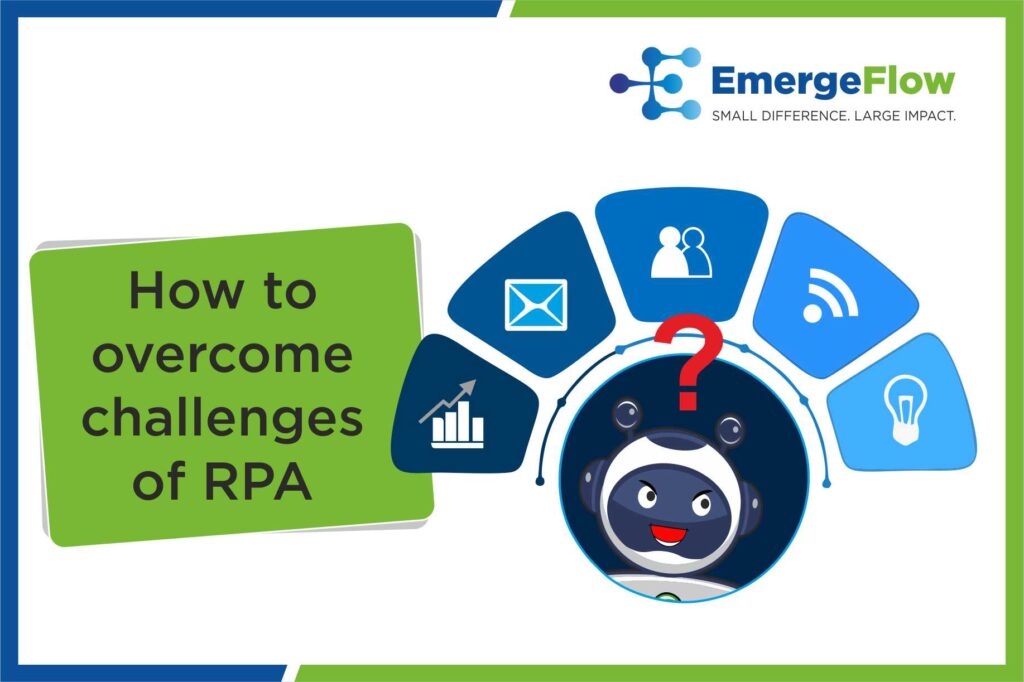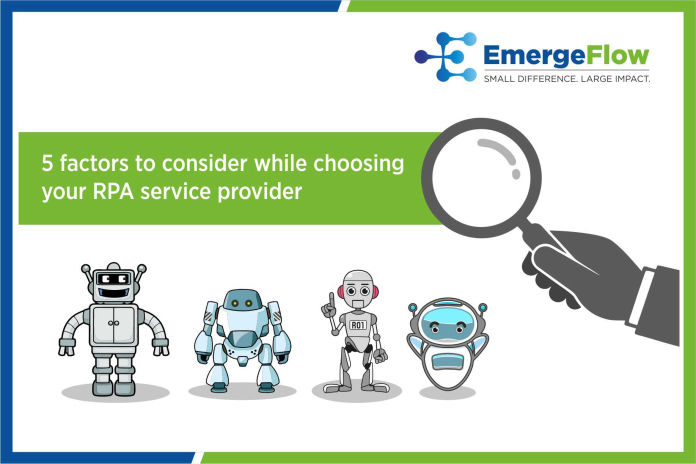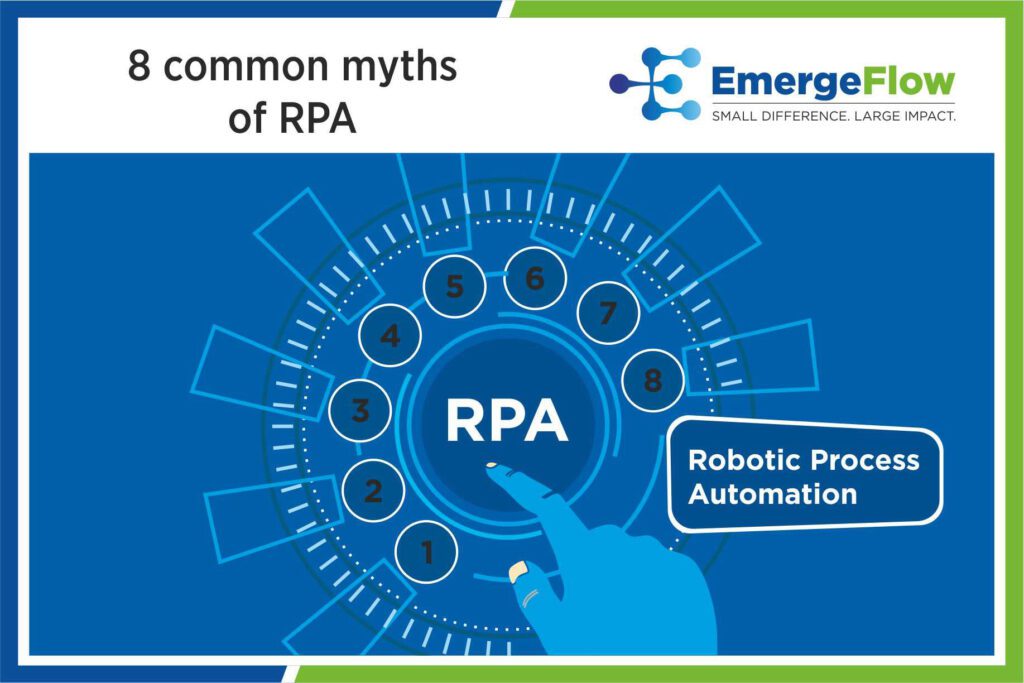Robotic Process Automation is transforming the globe. Every industry, including banking, healthcare, insurance, BPO, energy, and telecommunications, benefits from it. It provides a number of advantages that assist businesses in streamlining their working processes and completing jobs that demand greater concentration and skill.
There are a few issues that every business has when integrating robotic automation solutions with new technologies that need to be taken into consideration. We will concentrate on learning about the principal RPA difficulties and solutions in this article.
Top 7 challenges faced by organizations while implementing RPA
We have compiled a list of top RPA challenges faced by firms along with their relevant solutions in this article. We will first have a look at the challenges, followed by the solutions.
1. Employee resistance and onboarding
Changes made to the new technology are referred to as onboarding and employee resistance. Due to the obligations involved, which may modify an employee’s daily schedule, the adjustments may be upsetting. Additionally, the implementation process, constant communication, and new skills are required. It fits under the category of highly common and well-known RPA issues.
However, this is actually a false notion, since RPA has proven to be an enhancer for the employee satisfaction and their productivity.
2. Mismanagement of responsibilities
Automation of robotic processes entails several obligations. Every process that is being introduced into the processes must have a concerned individual. The mishandling of roles is a significant barrier to overcome if you are using robotic process automation technologies in your firm. Therefore, You must definitely take this fact into consideration before installing robotic process automation systems.
3. Lack of local team
Team is required to make any process successful. If the team doesn’t have the required skills to carry out the robotic process automation, then it is one of the biggest issue while considering implementing the RPA process. Working in silos could lead to wrong outputs and mismanagement in internal processes for RPA.
4. RPA Maintenance
Once the implementation gets completed and all the processes have successfully been deployed, then a new challenge emerges – Maintenance. RPA systems require maintenance during efficiency processes. Employees find it difficult to perform the tasks if they don’t have proper maintenance protocols.
5. Infrastructure issues
One of the top challenges of RPA implementation is having the necessary infrastructure and deploying the RPA system in the desired location. A dedicated team for this purpose is required in order to run the systems smoothly. Infrastructural issues can lead to low efficiency, lower output and high setup cost for the organization.
6. Limited application
Some documents need only partial automation. Therefore, dedicating effort and money to partial automation is not reasonable. Additionally, if it requires picture, audio, or video data, full automation solutions are required. Many a times, to deal with this situation, a end-to-end process is broken into smaller processes, so there is a scope for manual intervention.
7. RPA Development
The most crucial component in modern enterprises is customization. Every business needs solutions that are tailored to their preferences or standards. However, personalization is difficult to implement in the case of robotic process automation. RPA is a talent that calls for cutting-edge technology, a distinct identity, etc. Therefore, getting everything for every business at once is difficult. Furthermore, the price will be higher than the actual cost.
How to overcome RPA challenges?
After going through all the RPA challenges mentioned in this article, one must know how to overcome these challenges as well. We have drafted few relevant solutions for these challenges. RPA implementation needs proper planning. It has some benefits as well. For example, if employees give full power to RPA, then they will have added advantage as well.
In addition, we would like to point out that, despite the aforementioned problems and hurdles, implementing RPA is one of the simplest tasks in contemporary technology. Robotic process automation deployment is also quite simple. Because they can quickly overcome RPA issues, businesses continue to use RPA solutions. They take into account the resistance and onboarding of new employees, their anxiety, infrastructure problems, corporate operations, organizational restructuring, the most recent applications, etc.
As per the PwC report, RPA is one of the most preferred technologies of the enterprise in this era. Firms are choosing RPA solutions despite being aware of their hurdles. It is evident from the results that RPA helps businesses to grow, help their employees scale up and achieve more in their futures.
Additionally, firms are increasingly selecting the proper procedures for their operations in order to safeguard their future and save money. Now that businesses are aware of both the use of attended and unsupervised robots, this is assisting them in their daily operations. They are aware that robotic process automation technologies won’t seize their chances.
Conclusion
There are both pros and cons associated with implementing RPA technology in the enterprise business. But it is important to know the problems that a newly adopted technology may face in the long run.
Robotic Process Automation along with Artificial Intelligence and Machine Learning is rapidly gaining popularity day by day. To deal with the top RPA challenges, the companies look for the experienced and certified RPA professionals.
At EmergeFlow, we are committed to giving our clients the finest service possible. We offer services at every stage of automation, including advising, developing bots, deploying bots, and bot maintenance. In the end, what counts to us is creating pure value for the clients and observably better productivity, efficiency and high derived value.





